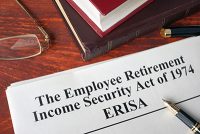State-Law Privacy Lawsuit Preempted by ERISA, Court Rules
A disability plan participant’s state-law privacy lawsuit against the plan’s claims administrator was dismissed by a federal district court, which found it was preempted by the Employee Retirement Income Security Act (ERISA).







